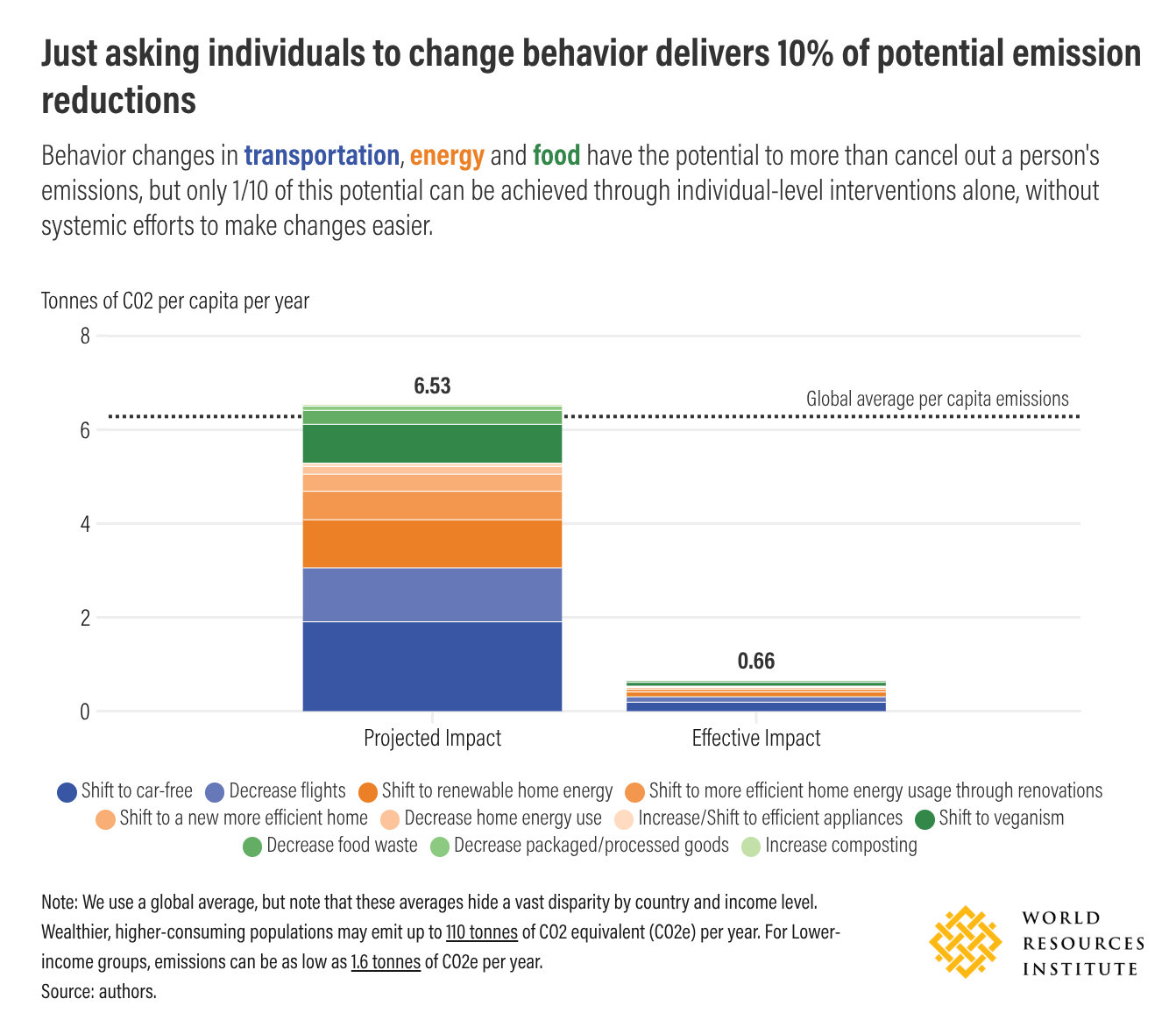It's much easier to go carless if your city has good public transit

I’m a vegetarian who drives an electric vehicle (EV). In a few weeks' time, we’re getting a heat pump installed so that we can remove our gas boiler. These are all climate-positive things to do, and I’m trying to do my bit.
This article by the World Resources Institute shows how important it is that there is an infrastructure that enables individual decision-making to take place. For example, I’ve been vegetarian now for eight years, and it’s much easier to remove meat from your diet these days even than when I started to so in 2017. Likewise, because of investment in EV infrastructure, these days it’s unproblematic to own or lease an EV.
It’s interesting being an early-ish adopter of air source heat pump technology in the UK. The process is not as smooth as it could be, with our driveway having to be dug up to upgrade the total electricity supply capacity entering our property. So, although we have visited a couple of heat pumps and there is a government grant, it’s still more expensive, and involves more upheaval, than just getting another combi boiler.
Coupled with active hostility in some quarters, it’s a good example of how the Overton Window can apply to technology interventions and pro-climate lifestyle choices. That’s why, as well as making such choices ourselves, we should be aware of, and be advocating for, the systems within which those choices can be made easier.
Our data shows that pro-climate behavior changes, such as driving less or eating less meat, could theoretically cancel out all the greenhouse gas (GHG) emissions an average person produces each year — specifically among high-income, high-emitting populations.
But it also reveals that efforts focused exclusively on changing behaviors, and not the overarching systems around them, only achieve about one-tenth of this emissions-reduction potential. The remaining 90% stays locked away, dependent on governments, businesses and our own collective action to make sustainable choices more accessible for everyone. (Case in point: It’s much easier to go carless if your city has good public transit.)
[…]
We found that, in theory, shifting to 11 pro-climate behaviors we analyzed in the energy, transport and food sectors could reduce individuals' GHG emissions by about 6.53 tonnes per year. This would more than cancel out what an average person currently emits (about 6.3 tonnes per year). However, our data also shows that when people attempt these changes in the real world, without supportive systems, they typically only reduce emissions by about 0.63 tonnes yearly — just 10% of what’s theoretically possible.
It’s not that individual changes don’t matter; when someone switches to an electric vehicle (EV) or avoids a flight, they make a real impact. The problem is that without supportive infrastructure, policies or incentives (such as public EV chargers or financial subsidies), these programs struggle to drive the broad-based change the world really needs.
Source & image: World Resources Institute